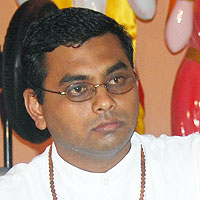From a satsang with Pt. Umadutt Maharaj, Spiritual Leader, SWAHA Bhakti Jyoti Mandali
In the journey of life, we are bound by sacred debts, as stated in the Bhagwat Maha Purana. These five debts are responsibilities that each of us must fulfil daily, offering gratitude for the gifts we have received:
- Deva Yagya: The gratitude to divinity, honouring the divine for the human form with which we have been blessed. This is fulfilled through daily rituals—lighting the deeya, offering jal and flowers, and practising our religious duties.
- Rishi Yagya: Honouring the debt to the sages, who have imparted the sacred scriptures. We repay this debt through the daily study of these texts and by living according to their teachings. The Bhagavad Gita, for instance, is the spoken word of Lord Krishna, a direct manifestation of the divine.
- Manushya Yagya: Repaying the debt to humanity, fulfilled through acts of service and kindness to others, embodying the principle of doing good in all aspects of life.
- Pitri Yagya: The debt to our ancestors, whose traditions and dharma we uphold and build upon every day. Pitra Paksha is a time to pay special homage, but this duty extends throughout our lives, as we live in the light of their legacy.
- Bhoot Yagya: The debt to all living creatures, recognising our duty to serve and protect even the lower forms of life.
As we observe the sacred period of Pitra Paksha, we are called to delve into the true essence of the rituals and sacrifices performed during this time.
In the Bhagavad Gita, Lord Krishna reveals to Arjuna the eternal nature of the soul. He teaches that all beings, including those on the battlefield, have existed in the past, exist now, and will continue to exist in the future. This speaks to the cycle of reincarnation, where the soul transitions through the six stages of existence: birth, growth, maturity, decay, death and rebirth.
The performance of spiritual actions and sacrifices generates positive energy, blessings that extend beyond this physical life. Within our bodies, the realms of Pitra, Brahma, Vishnu, Shiva and Mrityu Loks can all be experienced, reflecting our spiritual state. Our very existence embodies our ancestors, as we are the reincarnation of souls that have departed, as well as the living ancestors of future generations.
The Bhagwat Maha Purana suggests that the soul does not reincarnate far from its origin; thus, we may be reborn within our own lineage. Our spiritual duties, therefore, are not just for the benefit of those who have departed but also for ourselves and our descendants, as we journey through the cycle of karma toward moksha, or liberation from the process of life and death.
During Pitra Paksha, we have a profound opportunity to express our gratitude to the ancestors who have paved the way for us. This auspicious time allows us to repay the sacrifices they made, ensuring that their blessings continue to guide and protect us in this life and beyond.


